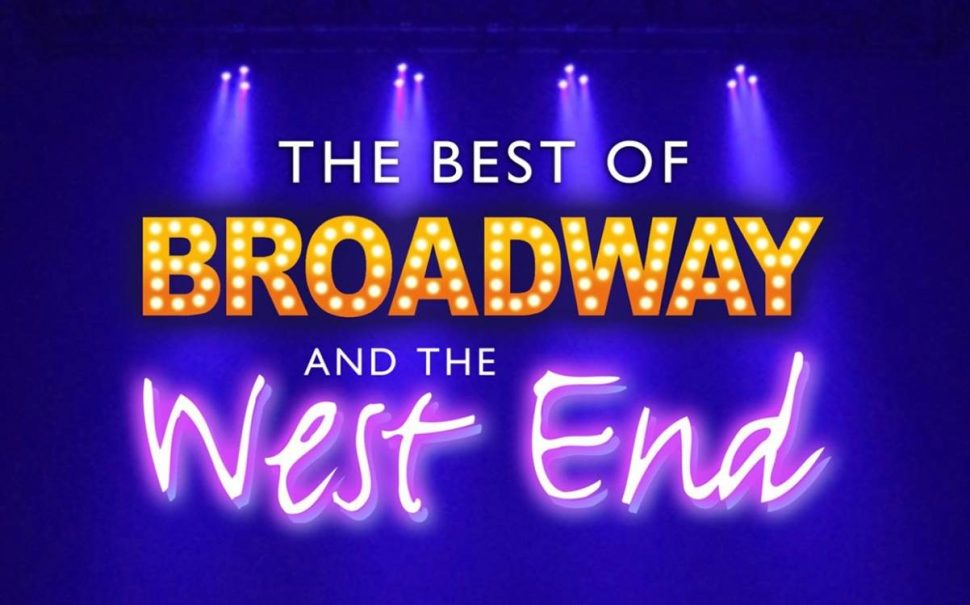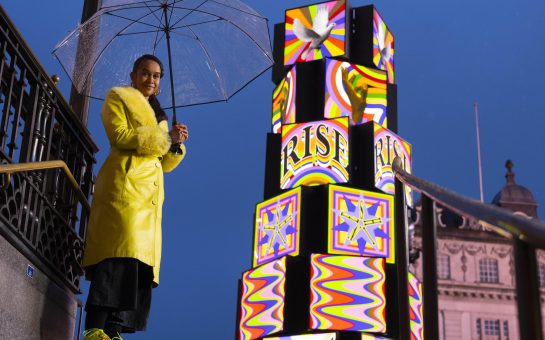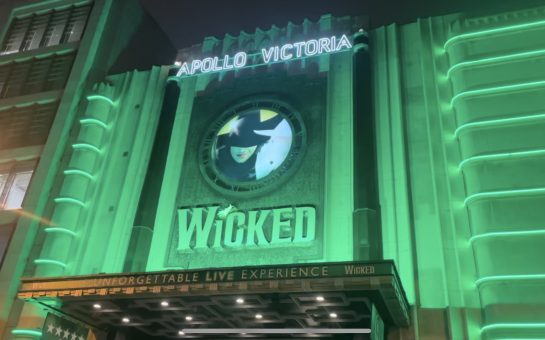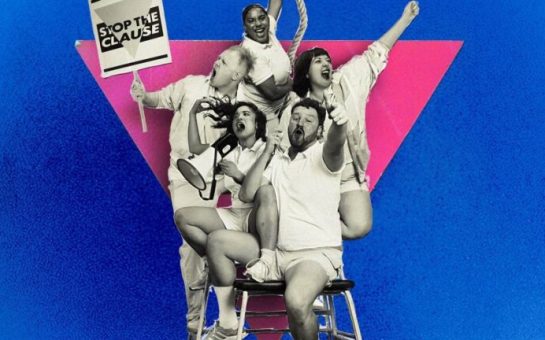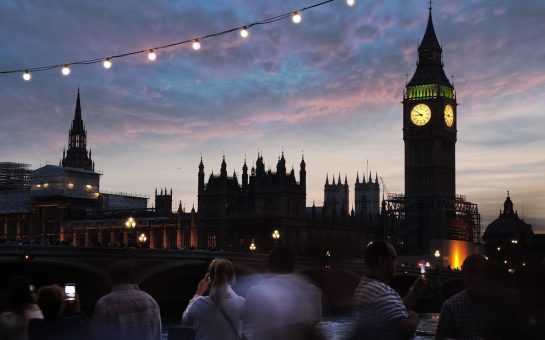Turning your love of musicals from a fun audience member to financial investment can be exciting and profitable—whether on Broadway or the West End—depending on your vision, budget, and goals.
For anyone thinking about investing in a musical, choosing the right stage—whether in New York City or London—offers the possibility of a production’s creative future and financial success.
Beyond the glitz and glamour of winning a possible Tony or Olivier award, the people in the know are the experts who have a track record of successes for their best tips.
Patrick Gracey, The Society of London Theatre’s (SOLT) board member said: “I will absolutely say, and I say this both with knowledge and with love, the UK is the best place in the world to make and to see theatre.”
High production costs and fierce competition make location a pivotal decision. Producers must weigh creative ambition against practical considerations like venue availability, union rules, and tax incentives.
A comparative analysis of the top 20 musicals by number of performances reveals valuable insights into the longevity and box office success of productions in both New York and London.
The longer a show runs, the more profitable it becomes for producers, as extended performances typically mean more ticket sales, broader brand recognition, and greater opportunities for touring and licensing deals.
Data compiled by The Londoners highlights how long each of the top 20 musicals ran in both Broadway and the West End, illustrating where each production premiered and how long it sustained audience interest.
This side-by-side visual comparison offers a deeper look into which market better supports long-running shows, highlighting how cultural tastes, ticket prices, production costs, and venue availability influence theatrical success.
From global blockbusters like The Phantom of the Opera and Les Misérables to enduring hits like Chicago and Mamma Mia!, the data shows that while both cities have their share of mega-hits, some musicals thrive significantly longer on one side of the Atlantic.
According to veteran producer Martha Diva, getting a musical to succeed on stage starts with a solid financial plan.
She said: “This process helps in evaluating whether the production has a realistic opportunity to cover its costs and subsequently generate profit.”
When comparing Broadway and the West End, Diva said: “The cost to do a show in London is significantly less expensive.
“You can also make a video and use it back in the States, which isn’t allowed under U.S. union rules.”
But financial planning isn’t everything. Casting and audience diversity matter just as much. This creative decision can be a fun part of being involved in the production process.
Diva said: “Without effective on-stage chemistry, there may be a lack of connection with the audience.
“To ensure sustained ticket sales, it’s important to have a variety of groups buying tickets.”
For anyone dreaming of producing a musical, the choice between launching on Broadway or in London’s West End can be a make-or-break decision. Both theatre hubs offer big opportunities—but also come with big costs.
Looking at whether to start on Broadway or the West End shows can run longer in one place than the other. Is it better to start on Broadway and move it to the West End or vice versa?
Comparing the top 20 longest-running musicals offers a revealing snapshot of which city—New York’s Broadway or London’s West End—keeps curtain calls going longest.
The data shows the answer isn’t as straightforward as you might think.
Musicals like The Phantom of the Opera and Les Misérables, both of which originated in London, achieved remarkable longevity in the West End—outpacing their Broadway counterparts in number of performances. Phantom, which recently closed on Broadway after 35 years, is still running in London.
Les Misérables ended its Broadway run in 2003 but continues to draw audiences in London decades later.
On the flip side, American-born shows like Chicago and The Lion King have seen greater long-term success on Broadway. Chicago, which originally opened in 1975 and was revived in 1996, remains one of the longest-running shows in Broadway history. Its West End runs, by contrast, have been shorter and intermittent.
British audiences are often credited with supporting musicals for longer stretches, especially homegrown productions. Meanwhile, the high cost of maintaining a Broadway run means shows must hit profitability quickly or close.
Musicals that perform well in both cities—like Wicked, The Book of Mormon, and Mamma Mia!—reveal the rare global appeal of some productions. These shows have succeeded in navigating both markets, often with slight changes in staging, marketing, or casting to suit local tastes.
For producers, this data offers real insights. A long-running musical isn’t just an artistic achievement – it is a financial one and underscores the importance of launch strategy, local tastes, and staying power. For audiences, it’s a celebration of the shows that became more than just a night out – they became part of theatre history.
Musical theatre production combines artistic creation with commercial viability. From big production numbers to original scores, musicals demand hefty budgets, especially for cast members who can act, sing, and dance—often referred to as “triple threats.”
Unlike plays, musicals require added costs for orchestration, choreography, and vocal coaching. Creating a musical requires knowing how to choose a choreographer to bring it to life.
Choreographer Dale Mercer emphasized the importance of preparation and scale. He said: “Before creating choreography, it’s essential to explore the script, the music, and the director’s vision.
“If you start choreographing without this groundwork, the work will miss the mark.”
Choreographer Francesca Jaynes said: “Musicals are multifaceted. Choreography should always reflect and support the story—it must be dynamic, moving, and narratively purposeful.”
While many musicals begin with out-of-town tryouts—like Hamilton at The Public Theater or Wicked in San Francisco—producers often choose their official launch location carefully. The decision between Broadway or the West End involves examining the potential touring potential.
According to the Society of London Theatre (SOLT), West End theatres attracted 17.1 million attendees in 2024, generating significant economic impact. The Broadway League reported $1.5 billion in gross revenue during the 2023–2024 season, despite a slight decline from pre-pandemic levels. Notably, the West End drew almost 5 million more attendees than Broadway, driven by lower ticket prices and broader access.
Becky Gregg, Research and Insights Manager at SOLT, broke down the key considerations:
Broadway:
- Sky-High Costs: Production budgets often exceed $18 million, with weekly costs over $700,000.
- Fierce Competition: Dozens of shows vie for limited venue space and audience attention.
- Ticket Prices: Higher prices help offset costs but may limit accessibility.
West End:
- Lower Entry Costs: Generally more affordable to launch, though large casts and international teams increase expenses.
- Audience Volume: More attendees annually, with strong tourist demand.
- Flexibility: Opportunities for international marketing and trial runs before U.S. debuts.
Success in musical theatre is measured by longevity, box office earnings, and global influence. Yet producers must first determine where their story is best told. Could it be the next Hamilton, Les Misérables, or Phantom of the Opera—or a smaller gem that thrives on tour?
Whether you’re launching in London or New York, strategy matters.
From creative development to choreography, marketing, and financial forecasting, every choice shapes a show’s path. As producer Martha Diva put it: “Sometimes, where it starts is the key to its success.”
